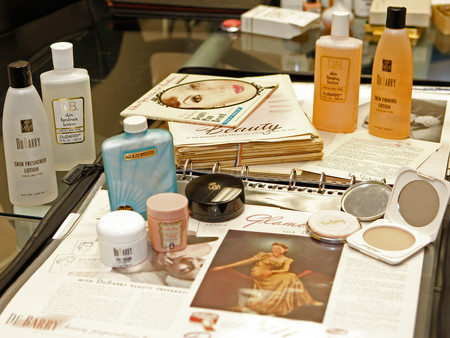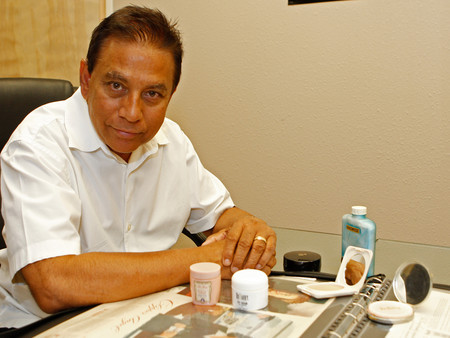Las Vegas exporter and DuBarry cosmetics owner fights trademark infringement in England
When Las Vegas exporter Panch Prasad's company bought the DuBarry cosmetic line in 1997, Prasad believed he had acquired the key to a select high-end market segment in countries around the world.
DuBarry was the first American brand of cosmetics when it was established by the late Richard Hudnut in 1903, said Prasad, president of U.S. International Trading Corp.
Prasad believes Hudnut took the name from Jeanne Becu Du Barry, the mistress of King Louis XV of France who died on the guillotine in 1793 during the French Revolution.
Some of DuBarry's most loyal retail customers have been using its products for more than 50 years, Prasad said. One man sent photos of his 91-year-old mother, a longtime DuBarry customer, and suggested she could be a model for the product line. Mature women weren't the only ones who liked DuBarry cosmetics, however.
Michael Miller of Brighton, England, contacted Prasad in 2007, suggesting he had investors who could help DuBarry expand its sales in that country, Prasad said. The investment money never came, Prasad said.
Instead, Prasad was outraged when he learned that Miller had filed an application to trademark DuBarry in the United Kingdom.
Over the last year, Prasad has spent $35,000 in legal fees fighting Miller's trademark application in the United Kingdom.
Trademark challenges are becoming more common in foreign countries.
Companies with U.S. trademarks previously tended to sell their products locally, but many are beginning to sell products directly to consumers or expanding their distribution channels in foreign countries. That leads to more difficulties in protecting their trademark abroad, said Matt Schmidt, a spokesman for the International Trademark Association.
While the United States provides strong protection for trademarks, some foreign countries do not protect trademarks as strenuously, Schmidt said.
Trademark challenges have tripped up several small Nevada manufacturers that export, said Al DiStefano, director of global trade and investment for the Nevada Commission on Economic Development.
While DiStefano has no specific knowledge about the DuBarry trademark dispute or about English trademark laws, the Nevada official said small exporters often make the mistake of selling products in foreign countries before securing exclusive use of their trademarks in those countries.
"They don't research the laws of the countries that they are going into," DiStefano said.
By contrast, he said, "Coca-Cola and Pepsi and the big companies know exactly what to do."
In many foreign countries, such as China, the legal right to a trademark belongs to whoever files a trademark application first in that country, DiStefano said. So small companies with trademarks in the United States and a long history of using the trademark sometimes are stunned to learn that a competitor has gained the legal right to use their trademark in the foreign country.
Small businesses need to research the laws of the country where they are selling their product in advance, DiStefano said. The U.S. Embassy or U.S. Consulate often will supply key information about trademark laws in the country, he said.
"An individual should trademark the brand in each country where they do business," Schmidt said.
The Madrid system of international registration, which is administered by the World Intellectual Property Organization, provides a way to protect trademarks in 76 countries. The European Union's community trademark system provide ways to register a trademark in European Union countries at the same time. "But the key is that a trademark is only protected in the countries where they are obtained," Schmidt said.
Prasad, a member of the government's U.S. Export Council, believes he was prepared when his company started selling DuBarry cosmetics wholesale and through distributors in the United Kingdom.
He spends $15,000 to $20,000 a month on attorneys for the protection of 100 trademarks on numerous cosmetic product lines such as Mill Creek Botanicals, Amazon Organics and Silver Fox.
"Even if you know how to do (trademark protection) right, you have to monitor the situation," Prasad said.
His company contracts with manufacturers in other U.S. cities to make the products. He has a 40,000-square-foot warehouse and employs 11 workers in Las Vegas.
Contact reporter John G. Edwards at jedwards@reviewjournal.com or 702-383-0420.


















